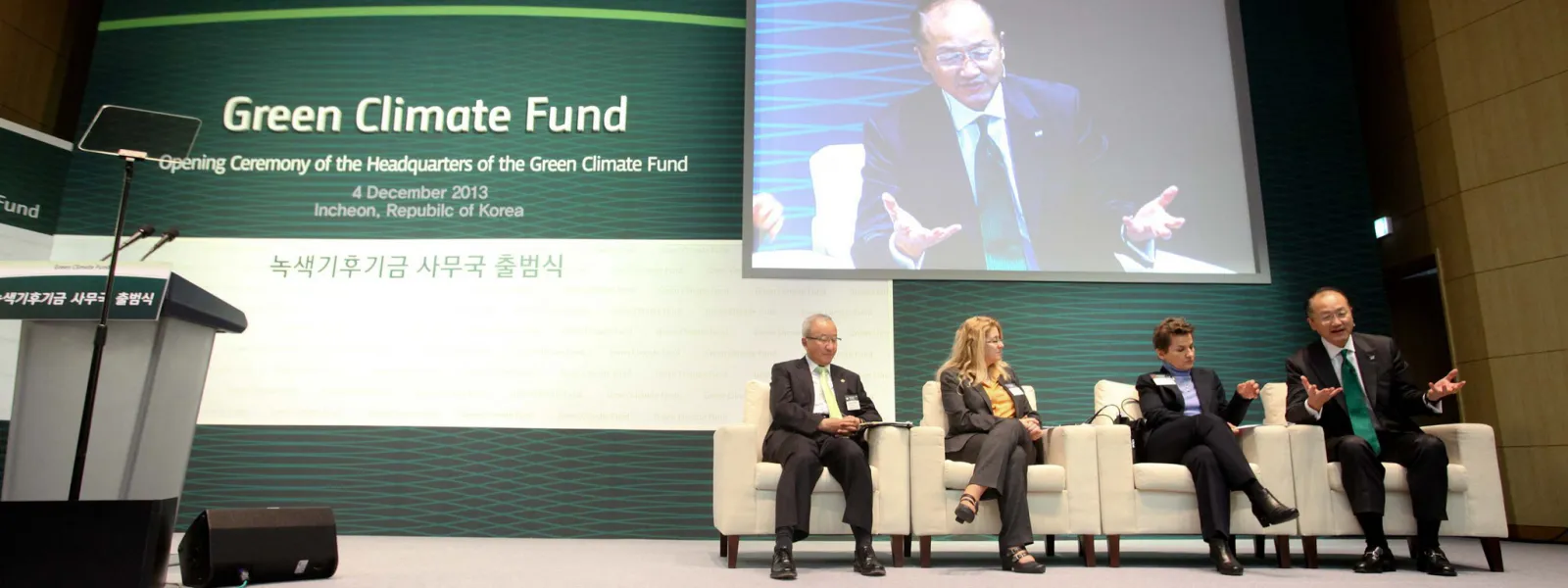
Project
Photo: GCFAdvocating before the Green Climate Fund
The Green Climate Fund is the world's leading multilateral climate finance institution. As such, it has a key role in channelling economic resources from developed to developing nations for projects focused on mitigation and adaptation in the face of the climate crisis.
Created in 2010, within the framework of the United Nations, the fund supports a broad range of projects ranging from renewable energy and low-emissions transportation projects to the relocation of communities affected by rising seas and support to small farmers affected by drought. The assistance it provides is vital so that individuals and communities in Latin America, and other vulnerable regions, can mitigate greenhouse gas emissions and address the increasingly devastating impacts of global warming.
Climate finance provided by the Green Climate Fund is critical to ensure the transformation of current economic and energy systems towards the resilient, low-emission systems that the planet urgently needs. To enable a just transition, it’s critical to follow-up on and monitor its operations, ensuring that the Fund effectively fulfills its role and benefits the people and communities most vulnerable to climate change.
Reports
Read our recent report "Leading participatory monitoring processes through a gender justice lens for Green Climate Fund financed projects" here.
Partners:
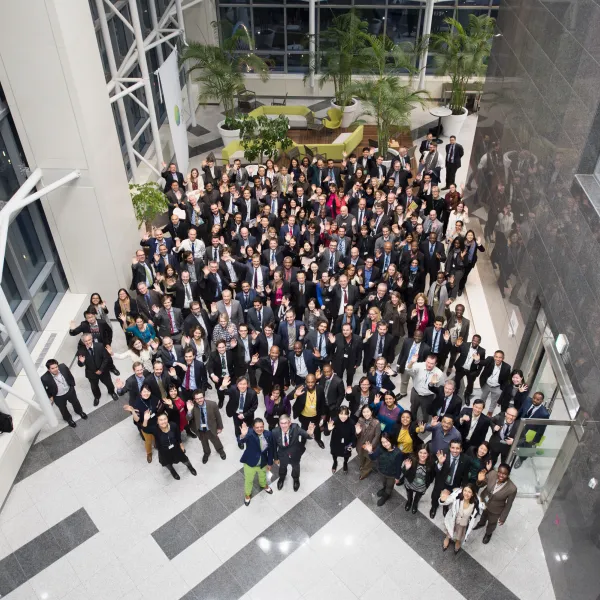
Related projects
Latest News
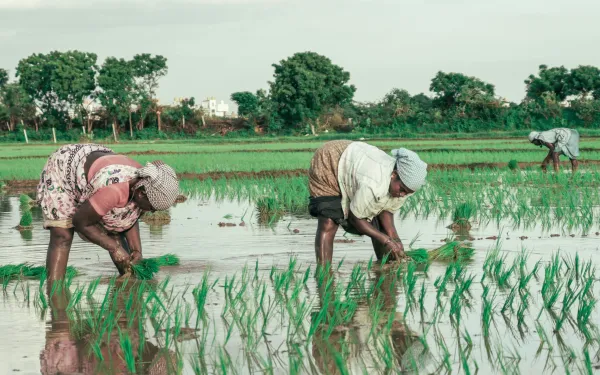
Small investments with great impacts. Territorial gender-just climate solutions
Since 2016, the Global Alliance for Green and Gender Action (GAGGA), together with other actors, has promoted a series of initiatives to strengthen the inclusion of a gender perspective in climate finance, particularly within the projects and financial flows of the Green Climate Fund (GCF).The GCF is the first international climate finance fund to incorporate a gender perspective as a central pillar of its operations, becoming a key framework for advancing equity in the access, use, and allocation of climate resources globally.However, international climate finance that reaches countries is often disconnected from the actual needs of the local communities it is meant to benefit— especially women. This poses a critical issue that demands urgent attention— communities have the right to participate in decisions that directly affect them. At the same time, it misses the opportunity to incorporate local knowledge into solutions— knowledge that could make them more relevant and effective in addressing the climate crisis. In its special report on climate change and land, the Intergovernmental Panel on Climate Change (IPCC, 2022) highlights that incorporating women’s knowledge of land management helps mitigate degradation and supports the adoption of integrated adaptation and mitigation measures.Gender-responsive climate finance goes beyond allocating resources to women and promoting gender equality—it requires rethinking how financial and climate solutions are designed and implemented. This means acknowledging the diversity of women, removing barriers to resource access, defunding so-called ‘false solutions’, and supporting initiatives that tackle the structural causes of climate change.In Latin America and the Caribbean, many local climate solutions remain unknown to decision-makers. As a result, they struggle to receive support, be replicated, or serve as inspiration for other initiatives benefiting the same communities. This publication presents five case studies of successful, locally developed climate solutions with a focus on gender and climate justice. The goal is to strengthen collaboration between those responsible for providing and implementing GCF resources and civil society organizations.The case studies show the efficiency that can be achieved when resources are channeled directly to civil society organizations and communities. All the projects were carried out with budgets under USD 50,000 and made significant contributions to transforming the structural conditions that heighten the vulnerability of territories, women, and other marginalized groups in the face of the climate crisis. Read and download the publication
Read more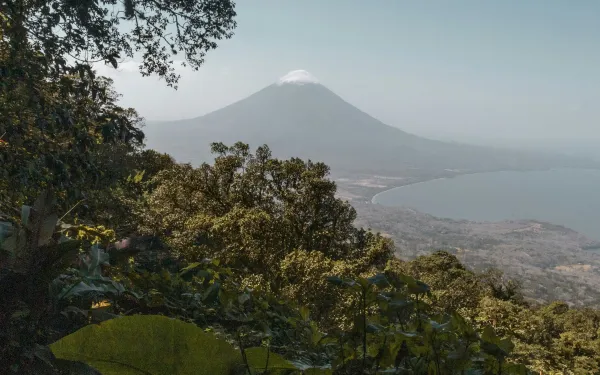
Leading participatory monitoring processes for Green Climate Fund financed projects
The Green Climate Fund (GCF), a multilateral climate fund under the United Nations Framework Convention on Climate Change (UNFCCC), allocates funding for projects and programs aimed at reducing greenhouse gas emissions and building resilience to climate change impacts in developing countries. To date, the GCF board has approved 243 projects worldwide, committing 13.5 billion USD in total. Notably, approximately 26% of these projects and programs target Latin America.This financial mechanism has become a lynchpin of the climate finance architecture, challenging conventional approaches to international projects. It is governed by a board with equal representation from developed and developing countries (UNFCCC designations); robust environmental and social policies rooted in human rights; an indigenous people’s policy, backed by an advisory group that interfaces with the Secretariat and the Board; a stated preference for maximal information disclosure; a seat for active observers representing civil society organizations; strong ties to the UNFCCC and the Paris Agreement; and an explicit mandate to include a gender perspective. In fact, all approved projects and programs are required to integrate a Gender Action Plan (GAP). In addition, the GCF is mandated by its own policies to facilitate stakeholder participation mechanisms. These mechanisms encompass representation from diverse sectors, including the private sector, civil society organizations, vulnerable groups, women, and indigenous peoples.Though implementation of these safeguards and progressive policies is far from perfect, their existence lays the groundwork for stronger future implementation. Civil society, including feminist movements and organizations, engage with the GCF as a climate finance mechanism that should continue to be strengthened. The explicit analysis and commitment mandated for each project regarding social and gender considerations not only facilitate engagement but also uphold accountability.In late 2022, partner organizations of the Global Alliance for Green and Gender Action (GAGGA), including the International Analog Forestry Network (IAFN), Asociación Interamericana para la Defensa del Ambiente (Interamerican Association for Environmental Defense, AIDA), Fondo Centroamericano de Mujeres (Central American Women’s Fund, FCAM), Fondo Tierra Viva (Tierra Viva Fund) and Women’s Environment and Development Organization (WEDO), collectively launched a pilot initiative. The project aimed to facilitate participatory monitoring of the implementation of the project FP089 Upscaling climate resilience measures in the dry corridor agroecosystems of El Salvador (RECLIMA). 3 RECLIMA was approved by the Board of Directors of the GCF during its 21st meeting (B.21) in 2018. For the fieldwork, an alliance was formed with Unidad Ecológica Salvadoreña (Salvadorean Ecological Unit, UNES), a local ecofeminist NGO advocating for environmental and gender justice in El Salvador.The main objective of this project was to pioneer a participatory monitoring process for a GCF-funded project, with specific emphasis on gender equality. Each participating organization approached this collaborative initiative with genuine curiosity, eager to explore its feasibility and potential impact. There was also a collective commitment to openly share information about the process, results, challenges, and lessons learned. This report aims to summarize the outcomes of this exercise, providing an overview of the RECLIMA project and highlighting the importance of gender equality and participatory monitoring within climate projects; as well as sharing primary findings and key recommendations, tailored to GCF Accredited and Executing Entities. Read and download the report
Read more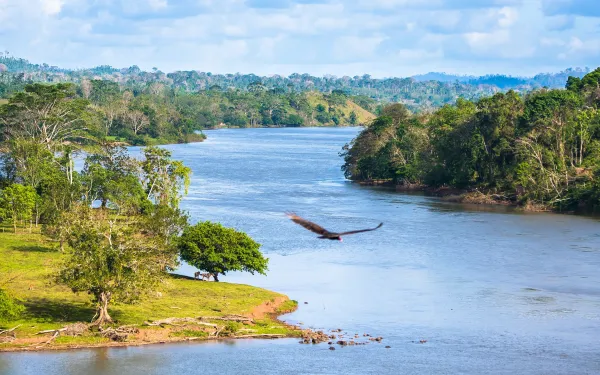
Communities in Nicaragua win Green Climate Fund withdrawal from project that violated their rights
In an unprecedented decision resolving a complaint filed in 2021, the Green Climate Fund terminated a forestry project because the developers failed to comply with the Fund's policies and procedures on socio-environmental safeguards. This non-compliance violated the human rights of indigenous and Afro-descendant communities. The Green Climate Fund, the world's leading multilateral climate finance institution, decided to terminate funding for a forest conservation project in Nicaragua because the developers failed to comply with the institution's policies and procedures on socio-environmental safeguards. The non-compliance violated the rights of indigenous and Afro-descendant communities, as the project threatened to exacerbate the situation of violence from which they were already suffering. The Fund had not made any disbursements for the project and project implementation had not yet begun.The decision, the first of its kind in the Fund's history, is in response to a complaint filed in June 2021 by representatives of the affected communities, with the support of local and international organizations, with the Fund's Independent Redress Mechanism. The Independent Redress Mechanism hears complaints from people who are or may be affected by projects or programs financed by the Fund."This decision is a recognition of the tireless efforts of the communities behind the case, who were able to demonstrate the difficult situation they face, as well as a reminder of the importance of involving local communities in all stages of a project, from its conception," said Florencia Ortúzar, Senior Attorney at AIDA, one of the organizations that accompanied and provided legal support to the complaint process.In the complaint, the communities argued that implementing the project— called Bio-CLIMA: Integrated Climate Action to Reduce Deforestation and Strengthen Resilience in the BOSAWAS and Río San Juan Biospheres— would have serious impacts because:There was no adequate disclosure of information, no indigenous consultation, and no free, prior, and informed consent.The project would cause environmental degradation and increase violence against indigenous communities due to land colonization.The conditions imposed by the Fund's Board of Directors for project approval (including independent monitoring of project implementation and ensuring the legitimate participation of indigenous peoples) were not met.There was a lack of confidence in the Central American Bank for Economic Integration, the entity accredited to channel the funds, as to its compliance with the Fund's policies.There was a lack of confidence in the ability of the Government of Nicaragua, as the implementing agency, to fulfill its obligations in the execution of the project. The goal of the project, for which the Fund committed $64 million USD in 2020, was to restore degraded forest landscapes in Nicaragua's most biodiverse region (home to 80 percent of the country's forests and most of its indigenous peoples) and to channel investments toward sustainable land and forest management.However, the project was designed without adequate consultation, with a complete lack of transparency on the part of the sponsoring bank and ignoring the difficult context of violence and lack of human rights protection still suffered by indigenous communities in Nicaragua, particularly in the project area.In recent decades, the harsh local situation has only worsened because of organized crime, drug trafficking, the expansion of agriculture and cattle ranching, and the promotion of extractivist policies, as well as the lack of state protection.The investigation launched by the Independent Reparations Mechanism, which included field work and face-to-face and virtual interviews with all stakeholders, confirmed some of the allegations made in the complaint, including the lack of adequate consultation processes and the lack of free, prior, and informed consent of the affected communities. This is stated in the investigation’s final report.In July 2023, the Fund's Board of Directors, which was called upon to decide on the future of the project based on the Investigation Report, delegated the task to the Fund's Secretariat. As a result, neither the IRM nor the claimants had any further say in the matter.Finally, on March 7 of this year, the Secretariat announced its decision: to terminate the project's financing agreement, acknowledging that the developers had failed to comply with the Fund's policies, as alleged by the communities in the complaint."The decision is a valuable lesson for the Green Climate Fund, whose policies and safeguards exist to prevent these unfortunate situations and must be applied rigorously and consistently from the conception of projects seeking funding," said Ortúzar. Press contactVíctor Quintanilla (Mexico), AIDA, [email protected], +52 5570522107
Read more